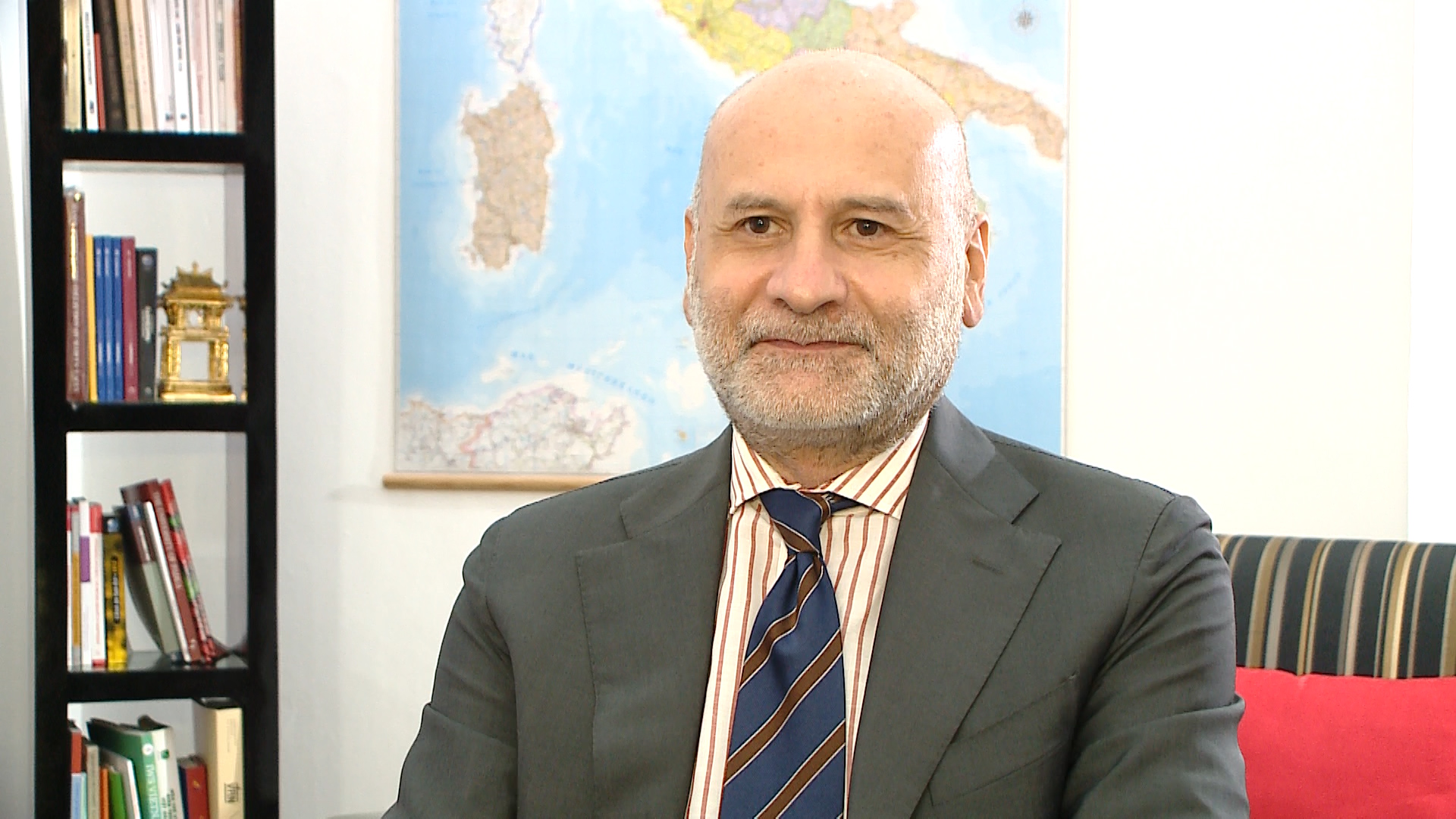Italian Ambassador: Viet Nam is an attractive destination for foreign investment
VGP - The openness of its economy, with a wide network of Free Trade Agreements (FTA), the young, reliable, and educated working force and the growing middle class are all elements that make Viet Nam a success story in attracting foreign direct investment (FDI), said Italian Ambassador to Viet Nam Antonio Alessandro in his interview with the Viet Nam Government Portal.
 |
|
Italian Ambassador to Viet Nam Antonio Alessandro - Photo: VGP/Thuy Dung |
“Knowing that the country would guarantee a conducive business environment is an important factor in orienting foreign investments,” he added.
Viet Nam needs clear and uniform anti-COVID regulations
Regarding business and production activities of Italian firms in Viet Nam over the recent months, especially when the fourth wave of coronavirus resurgence began, Antonio Alessandro said that lockdown measures and travel restrictions have significantly affected the approximately 100 Italian companies operating in Viet Nam. However, there have been no closures or relocation to other countries.
Italian entrepreneurs have shown great resilience and thanks to their distinctive approach–made of creativity and constant dialogue with the employees–managed to carry on their activities, the Ambassador said.
He underlined the meeting between the EU Ambassadors and representatives of the European Chamber of Commerce in Viet Nam (EuroCham) and Prime Minister Pham Minh Chinh a few days ago to discuss factors and recommendations for Viet Nam to maintain manufacturing and production activities amidst the outbreaks of COVID-19.
Accordingly, one of the main recommendations was to have clear and uniform anti-COVID regulations whereas in the present situation each district can have its own set of rules and way of proceeding. It was also suggested to ease restrictions on logistic and production sites, to allow for a better circulation of goods.
All countries have to find new models, a “new normalcy”, whereby people are protected by the vaccine and live with the virus, minimizing the risks while allowing economic activities to go on, Antonio Alessandro stated.
He suggested the Vietnamese Government continue to work on its reform program, adding that the EU-Viet Nam FTA (EVFTA) sets the right direction in terms of international standards, progressive labor policies, environment protection and green energy transition, which are of major importance for the Italian companies to trade and invest in Viet Nam.
Sharing experiences and solutions Italy has launched to remain manufacturing and production activities when the pandemic hit hard the country, the Ambassador said that even during the most difficult months of the pandemic, in 2020, Italy decided to maintain most of its production activities running.
Work from home was applied wherever possible but manufacturing sites remained open although with very strict health security measures. Free movement of goods was also ensured in the whole European Union. The Government supported the companies in the hardest hit sectors of the economy with subsidies, fiscal bonuses, a strengthened social safety net and State-guaranteed loans.
In addition to their national policies, member states of the EU took the historical decision to face the economic crisis together. Under the plan, which is financed through the first-ever issuance of EU bonds, Italy will benefit EUR 204.5 billion of concessional loans and grants. The plan is called “Next generation EU” because it is aimed at building a stronger, greener and more sustainable economy for our children and grandchildren.
Italy trusts in efficiency of vaccination campaign roll out in Viet Nam
Viet Nam demonstrated an extraordinary capacity to contain the contagion during the first 14 months of the pandemic, stressed the Italian Ambassador.
Nevertheless, the” zero case” goal has proved to be very difficult–especially since the Delta variant emerged, he said, adding that it’s time to accelerate the vaccination campaign which is the most important and effective tool to fight the virus and avoid lockdowns and other restrictions that are harmful to the economy.
To ensure equitable and universal access to vaccines for all, Italy, the EU and other partners have created the COVAX Facility, that is the multilateral instrument mandated to purchase and ship vaccines to low- and middle-income countries, to which Italy is one of the largest donors.
“Through COVAX, Italy has donated 1.6 million doses of Astra Zeneca to Viet Nam as a sign of out long-lasting friendship and because of our trust in the efficiency of the vaccination campaign roll out in Viet Nam that we want to support”, Antonio Alessandro underscored.
By Thuy Dung
